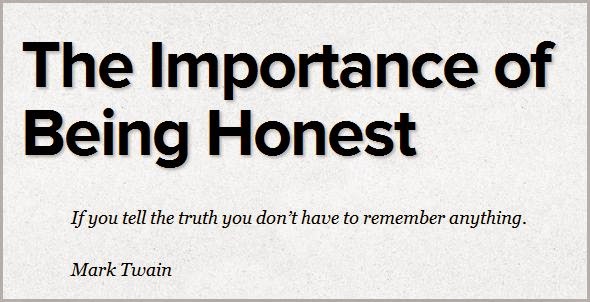With questions like: When / ... In case, you will / what do you do, instead of checking the option that reflects the best of your living habits, we tend to choose the best or ideally treatment we still kept in mind but never done when it really happens.
The traps are not exclusive to the workplace environment. To find the appropriate individuals, employers carefully design a frame recruitment question for the candidates, including all aspects: expertise, experience and personality of candidates.
Unfortunately, these questions are often in motifs "If ... then", "... In case what do you do?” Hard to blame when people answer these question which easily allows or leads them to imagine the best image of themselves.
Ending the interview, the employer felt glad to have an outstanding candidate, candidates are also self-satisfied because the answer fluently, full of "advantage".
Every business organization, every human resource management may have different questions to find out the best candidates, but in general, a good conversation allows the interviewer get a complete picture and a clear solution about candidate. It's like a story that revolves around the candidates, with the events that actually took place, along with the specific people involved.
It is not difficult to do. The questions of employer just need to specified environment and conditions in which the skills, experience, even the candidate's personality are revealed. For example, candidates may be required to talk about a project that they have been involved and build your questions around the project.
- What roles did you play in this construction project?
- As a chief engineer, how did you require employees to report to you?
- Progress of the project is longer than expected. What did you do then?
- So there is a disagreement, what is his name? Has he still worked with you?
Asking questions revolves around specific and realistic situations like this could help employers avoid the case of candidates "upgrade" introduced version excessively.
There were candidates who were not afraid of listing some large projects and describe the scope of project, but through interviews, employers discovered candidates play a too faint role in all projects and they could not give a specific example to convince employers about their abilities.
Be as specific as possible. It is one of the core criteria when you want to explore candidates through stories about themselves.
It allows the interviewer to visualize what candidates have done (experience), how they deal with situations (hard skills and soft skills), which help you see the attitude, working spirit and personality of a person.
The specific details are required candidates to be honest in your answers. A fictional story requires time and thought to strung, mounted the events, characters in a convincing way, while a true story just need questions to recall.
Flexibility, sensitivity of the interviewers when they receive the answers from candidates is also crucial because they can either lead both the interviewer and the candidate to go rambling unnecessary, or open other expensive information.
A candidate for a management position want to hide temper, his autocratic leading many employees quit has to answer the question why his team was short of staffs. Or an easy quit candidate will have to explain why he cannot go through all a project.
The next steps employers can do is check the information with any characters in a story about the candidate. You can choose one, two facts most notable for comparison.
However, this step is a considered option because in most cases, the candidates have enough pressure to complete a true story about themselves in a most convincing way.















Replies to This Discussion